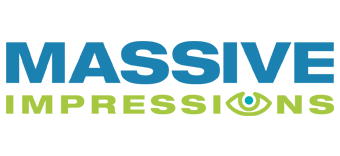A Critical Secret to Online Marketing Success
We online marketers have a secret to online marketing success. It impacts how much we can get done, how much we can produce, and how loud and accurate a voice we can maintain. We conduct this secretive process, all of us, but the best of us do it religiously. If we get it right, it means smooth sailing and our promotions proceed unimpeded. If we get it wrong, our efforts can stop dead in their tracks. What is this industry wide practice that few marketers ever discuss, but depend on every day?
Online marketing is not really rocket science. At the end of the day it involves work. It also involves discipline. Without discipline, things get confused fast. When branding is taking place, confusion and lack of discipline can become highly destructive. At a minimum, being undisciplined can result in time spent ineffectively. A lack of discipline leads to things being lost and facts being recorded improperly. Improperly recording one particular type of information, or losing it, can bring an entire brand’s marketing efforts to a dead stop.
Marketers need to get their message to the right audiences.
Marketers have to create and nurture their means to access audiences securely. To get access to audiences, marketers leverage web sites and web presences on other brand’s sites, for example social media. Marketers use their own domains and web based tools as well as Facebook, Google, Twitter, LinkedIn etc. Each of these approaches involve some kind of username and password combination. By using usernames and passwords that marketers choose themselves, they secure access to these web presences.
Here’s the Big Secret to Online Marketing Success: Don’t forget your username and passwords.
If you forget your usernames and passwords, you don’t have access to your tools and to your audiences. It seems simple, doesn’t it? You’d expect everyone who sets up a new Google account, or a Facebook Profile, to remember usernames and passwords, right? Yeah, but they don’t.
The problem is that too many people don’t remember their usernames and passwords when they need them. When it’s time to do marketing and leverage those presences, it’s often the case that nobody remembers what the logins were. Someone else did it. That person left the company. The owner is certain she has them, and she’ll see if she can find them tonight. You can’t call the person who they belong to because they moved to Hawaii, off the grid. It’s always something.
How could something so obvious be called a secret to online marketing success?
You’d think if it was so obvious, everyone would take it into account. For it to be such common knowledge, defining it as a secret seems a little overboard. The problem is so common; it happens so often that you’d think preventing it was some kind of secret. The amount of time spent by online marketers searching for lost logins must be costing businesses literally millions if not billions of dollars each year.
Trying to help brands get their digital presences unified should be easy in theory, until of course you run into the accounts that nobody remembers how to log in to. Simple little things that “should only take a minute” turn into awkward exercises that result in embarrassment and workplace tension. All of that is so easily avoided if you just know the right way to record logins, an obvious but too often overlooked secret to online marketing success.
Here’s my advice regarding usernames and passwords:
- Get yourself a nice looking composition book, one that’s small, but sturdy. Write your usernames and passwords inside that book.
- Don’t count on storing login info in a file on your computer. That’s not ideal. Here’s why:
- Computers can get hacked and all your usernames and passwords can get taken by someone else. You’re lucky if you find out when it happens, but sometimes you don’t know until afterwards, after the damage is done.
- Computer hard drives can fail altogether. That means losing the info, sometimes for good.
- You can overwrite a digital password a lot easier in a file than you can on paper. Writing on paper with a pen lets you know when something’s been updated in a way a digital file won’t.
- Record FIVE things for each login, not just the username and the password. Ideally, you should label each piece of info with the labels I’m suggesting.
- Record the Name of the thing or place you’re logging into completely. For example, if it’s a password for “Bob’s Testing Account on Google”, write that down. Don’t just write down “Bob” or “Google”. Record the name of the login account it completely.
- Record the URL or web address that you need to log in to. AT&T and Microsoft are notorious for having multiple places to login that aren’t all equivalent, but look very much the same.
- Record the Username of the account. Sometimes an email address is used as a user name. If that’s the case, label the email address as the username.
- Record the Password of the account. Be super-explicit about the differences between characters that might look the same, like “l” and “1” or “0” and “O”. If it’s not clear whether a letter is capitalized, draw a little arrow to it or something and label it “Capitalized” or something. Anything that helps you get the exact syntax of your password correct helps, no matter how goofy it looks. If you change a password, draw a line through the old one and record the new one prominently.
- Record the Date that you first established the account and defined the Username and the Password. If you make a new password, write the date next to the new password.
- Keep that composition book in the same secure place, always. If you need to lock it up, go for it. You should always be able to know its secure by it being in that place. If it’s missing, knowing immediately is critical.
Was this secret to online marketing success helpful to you? Are you already recording your logins diligently and securely? If not, get it together today so it doesn’t cost you tomorrow. Because if you don’t, believe me, it will cost you more than you’d like.



